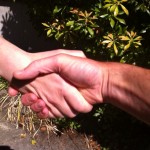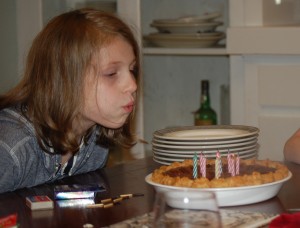One of Those Days
/ Last week, I had one of those days. You know the ones. You do your best to get things done, reach for creative heights, and refrain from yelling at your family or snapping at the mom who just ran over your foot with her giant stroller. And nothing quite seems to work out.
I sometimes have a hard time keeping days like that in perspective. Rationally, I know that some days are just like that. But I often turn my frustration inward, sure that if I could just buckle down, I could move forward on that big project/be a more patient parent/write the heck out of that fundraising letter.
Last week, I had one of those days. You know the ones. You do your best to get things done, reach for creative heights, and refrain from yelling at your family or snapping at the mom who just ran over your foot with her giant stroller. And nothing quite seems to work out.
I sometimes have a hard time keeping days like that in perspective. Rationally, I know that some days are just like that. But I often turn my frustration inward, sure that if I could just buckle down, I could move forward on that big project/be a more patient parent/write the heck out of that fundraising letter.
But last week, I had a bit of a breakthrough. I was complaining to my husband about my lack of forward momentum, and he reminded me that we'd had a sick child, strange school hours/off days, and an addition to our already crowded weekly schedule. From his perspective, it was no wonder I was off my game.
And that is when I realized that "those days" almost always happen when I'm out of my routine. My work may be creative, but that creativity relies on my devotion to my daily rhythms. And when those rhythms get thrown off, so does my ability to do my most effective work.
Of course, disruptions to routines are inevitable. Not only that, I'm starting to think they're valuable.
"Those days" often can be precursors to a different kind of day: the days when everything I work on comes together almost magically.
By stepping off my usual path, I give myself the chance to look at the things I'm trying to accomplish from a new perspective. And I'm able to be fresh and more creative when I get back on track.
So next time I have one of "those days," I'm going to try to look at it as a gift, rather than a curse.
Although I still might snap at the lady who runs over my foot with her giant stroller.







